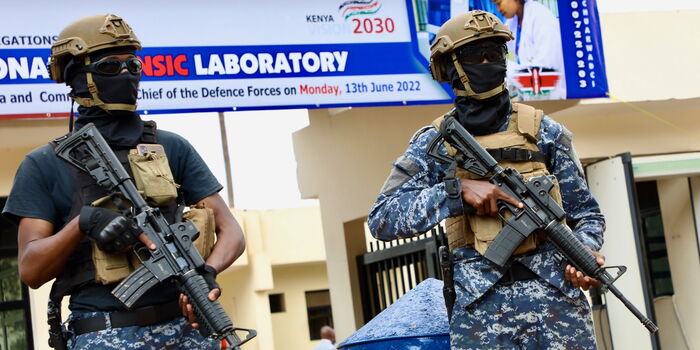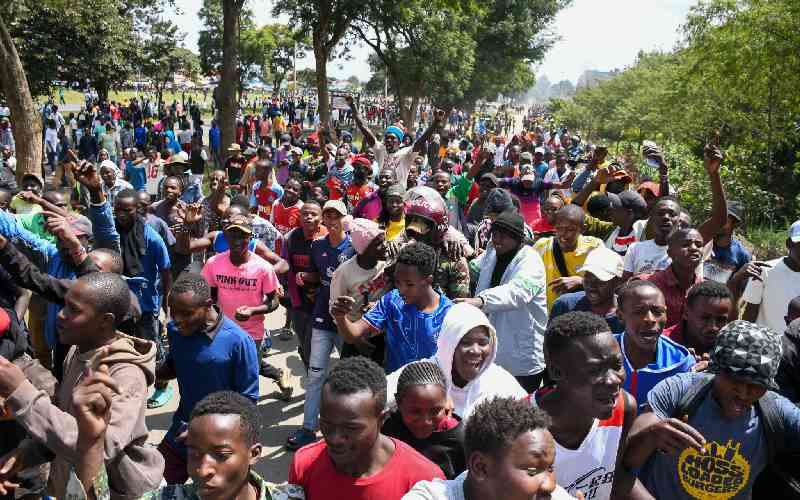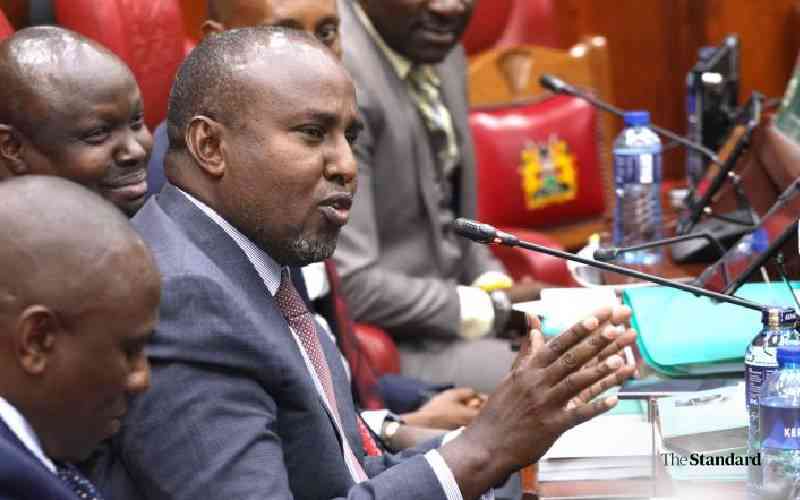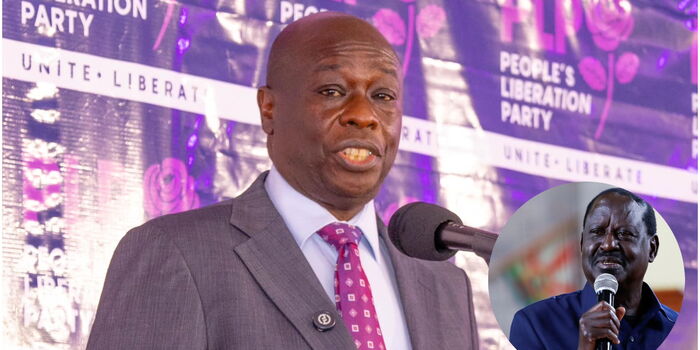Kenya's Saba Saba Protests Lead to Road Blocks and Calls for Reform

Kenya commemorates Saba Saba Day on July 7, a date deeply etched in the nation's history as a symbol of resistance and the pursuit of democratic freedoms. This year marks the 35th anniversary of the pivotal pro-democracy protests that challenged the autocratic regime of President Daniel arap Moi, advocating for multi-party democracy and an end to human rights abuses.
The origins of Saba Saba trace back to July 7, 1990, when opposition leaders Kenneth Matiba, Charles Rubia, and Raila Odinga called for a public rally at Nairobi's Kamukunji Grounds. Despite the government's ban and the arrest of key figures like Matiba, Rubia, and Odinga (who was detained at Kamiti Maximum Prison), thousands defied the crackdown. Supported by the 'Young Turks' – a group of young leaders including lawyers Paul Muite, James Orengo, and Gitobu Imanyara – the demonstrations persisted, sparking riots across major towns, leading to numerous deaths and arrests. This momentous day became a launching pad for the sustained public agitation that eventually led to the repeal of Section 2A of the Constitution in December 1991, paving the way for multi-party elections in 1992.
Decades later, the spirit of Saba Saba continues to resonate as Kenyans grapple with persistent issues of governance, human rights, and economic well-being. Opposition leader Raila Odinga, a veteran of the 1990 struggle, lamented that the dreams of Saba Saba remain largely unfulfilled. He pointed to ongoing challenges such as human rights violations, police brutality, a struggling economy, and the slow pace of constitutional reforms. Odinga called on Kenyans to commemorate this year's anniversary at Nairobi's Kamukunji Grounds, a site he described as 'deeply symbolic' in Kenya’s political history, while explicitly ruling out protests in the Nairobi Central Business District (CBD). He confirmed his personal attendance, stating that a formal resolution would be passed to honor fallen heroes and demand the realization of the movement’s unfulfilled goals.
In anticipation of the planned commemorations and potential unrest, the government heightened security across major towns, especially in Nairobi. Anti-riot police mounted heavy roadblocks on major routes into the CBD, conducting intensive searches and effectively barricading key arteries such as Waiyaki Way, Thika Road, Jogoo Road, Mombasa Road, and Kenyatta Avenue. This extensive police deployment and road closures caused widespread disruption, stranding commuters, forcing many to walk long distances, and leading several learning institutions to advise students to stay home. Interior Cabinet Secretary Kipchumba Murkomen appealed for peace, acknowledging past complaints against police conduct but insisting that those who use violence for political ends are destructive. Public Service Cabinet Secretary Geoffrey Ruku issued a stern directive, reminding civil servants that Monday, July 7, was not a public holiday and that all government employees were expected to report to duty, warning of disciplinary action for absentees.
Businesses in Nairobi CBD, having suffered significant losses during previous demonstrations, took extraordinary precautions. Many shop owners installed metallic grills, reinforced security, and moved goods to safer locations outside the CBD. Welders reportedly saw a surge in business as traders sought to fortify their premises, recognizing the vulnerability of common drawer doors. The fear of looting and property damage was palpable, leading many shops to remain closed and some private sector entities to advise staff to work from home.
The contemporary 'Gen Z' activism advocating for good governance has drawn significant parallels to the original Saba Saba movement. Former political detainees and MPs, including Koigi wa Wamwere, Njenga Mungai, and Mwangi Gichuki, emphasized that Saba Saba Day was a watershed moment that inspired confidence and laid the groundwork for Kenya's liberation and the 2010 Constitution. They urged Gen Z activists to learn from past struggles, embrace unity, and prioritize dialogue over confrontation. Human rights defender David Kuria also noted that the protests marked a new political era. However, Nairobi Woman Rep Esther Passaris raised concerns about potential external funding for protests, urging those allegedly providing funds to reconsider, as it is ordinary Kenyans who bear the brunt of violence and destruction. She advocated for peaceful expression of rights and emphasized dialogue as the key to meaningful change and national cohesion, citing the willingness of leaders like Raila Odinga to engage in discussions with opposing political figures.
Ultimately, Saba Saba Day endures as more than just a historical date; it serves as a powerful reminder of the sacrifices made for democracy, a platform for advocacy on contemporary issues, an encouragement for civic engagement, and a force for national unity, fostering a shared sense of identity among Kenyans in their ongoing pursuit of justice and good governance.
You may also like...
Diddy's Legal Troubles & Racketeering Trial

Music mogul Sean 'Diddy' Combs was acquitted of sex trafficking and racketeering charges but convicted on transportation...
Thomas Partey Faces Rape & Sexual Assault Charges

Former Arsenal midfielder Thomas Partey has been formally charged with multiple counts of rape and sexual assault by UK ...
Nigeria Universities Changes Admission Policies

JAMB has clarified its admission policies, rectifying a student's status, reiterating the necessity of its Central Admis...
Ghana's Economic Reforms & Gold Sector Initiatives

Ghana is undertaking a comprehensive economic overhaul with President John Dramani Mahama's 24-Hour Economy and Accelera...
WAFCON 2024 African Women's Football Tournament

The 2024 Women's Africa Cup of Nations opened with thrilling matches, seeing Nigeria's Super Falcons secure a dominant 3...
Emergence & Dynamics of Nigeria's ADC Coalition

A new opposition coalition, led by the African Democratic Congress (ADC), is emerging to challenge President Bola Ahmed ...
Demise of Olubadan of Ibadanland
Oba Owolabi Olakulehin, the 43rd Olubadan of Ibadanland, has died at 90, concluding a life of distinguished service in t...
Death of Nigerian Goalkeeping Legend Peter Rufai

Nigerian football mourns the death of legendary Super Eagles goalkeeper Peter Rufai, who passed away at 61. Known as 'Do...




